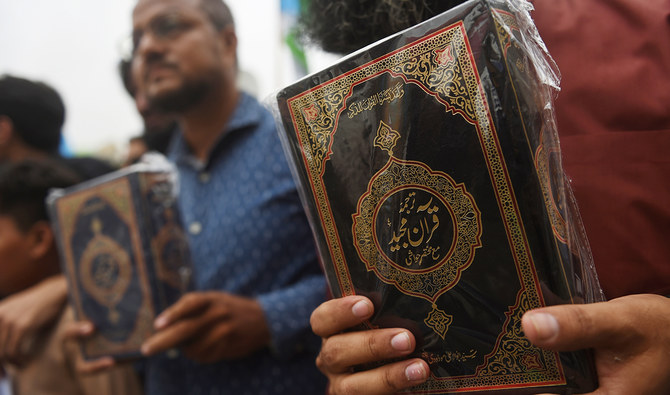ISLAMABAD: Prime Minister Shehbaz Sharif on Friday asked Secretary-General of the Organization of Islamic Cooperation (OIC) Hissein Ibrahim Taha to chalk out a strategy to build legal and political deterrence against the rising incidents of anti-Muslim hatred and Islamophobia, a report in the Associated Press of Pakistan (APP) said.
Thousands of Muslims across Pakistan held nationwide protests on Friday to protest an incident in Sweden late last month when an Iraqi immigrant burnt a copy of the holy Qur’an outside a mosque in Stockholm.
Protesters called on the Pakistani government to sever diplomatic relations with Sweden as PM Sharif urged Stockholm to clarify its position and explain why the protest was allowed to take place.
“Prime Minister Shehbaz Sharif on Friday urged the OIC to chalk out a coordinated and comprehensive strategy, aimed at raising global awareness about its perspective and building legal and political deterrence against rising incidents of anti-Muslim hatred and Islamophobia,” the APP said, adding that the PM spoke to Taha over the phone.
Sharif conveyed Pakistan’s “strong condemnation” of the provocative act of burning the holy Qur’an which had hurt the sentiments of Muslims worldwide, the APP said.
“He stressed that vilification of religion, revered religious personalities, holy scriptures, and symbols could not be condoned on the self-serving pretext of freedom of expression and protest,” the report added.
Sharif said the OIC must raise the issue with the United Nations secretary-general and other relevant forums and bodies with the UN. Taha condemned the incident and raised concern about the rising incidents of Islamophobia.
“He reaffirmed the OIC’s firm commitment to tackle the contemporary scourge of Islamophobia,” the APP said.
















